14 Signs You Are Dealing With An Untrustworthy Dog Breeder

When it comes to finding a new furry friend, choosing the right dog breeder is crucial. While many breeders are caring and reputable, there are some who might not have the best intentions.
Identifying red flags can save you from future heartbreak and ensure your puppy comes from a loving environment. So, here are a few warning signs to watch out for when dealing with dog breeders.
1. No Health Certifications
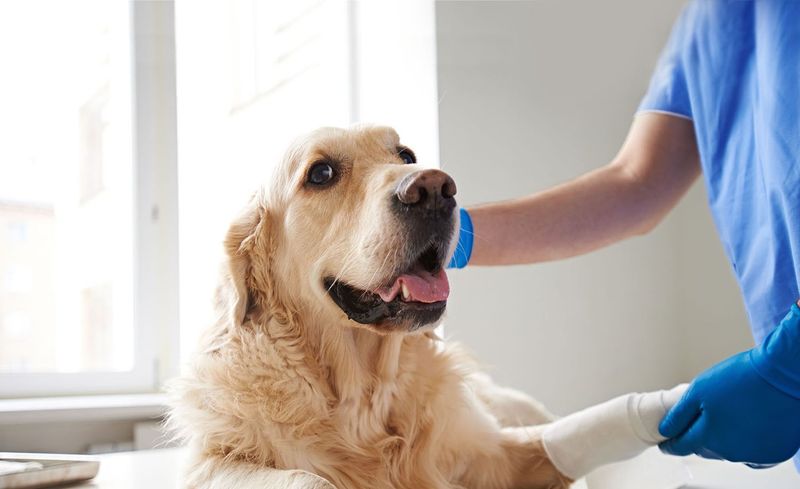
Trustworthy breeders prioritize the health of their dogs, providing proper health certifications for every puppy. If a breeder hesitates or outright refuses to present these documents, it’s a glaring red flag.
Health certifications, like those for hip dysplasia or genetic disorders, ensure the puppy has been screened for common breed-related issues. Without these certifications, you’re left in the dark regarding potential health problems that could arise later.
Breeders should be transparent about their dogs’ health history, including vaccinations and vet visits. If you notice any reluctance to share this information or if they dismiss its importance, reconsider your decision.
A breeder who values their reputation will be forthcoming and ensure their dogs are healthy. Always ask for these papers and verify their authenticity with a trusted veterinarian.
Ignoring this step might lead you to unexpected veterinary bills or, worse, a sick pet. This transparency is crucial for building trust and ensuring your future pet’s well-being.
2. Unwillingness To Show Parents

One major red flag when choosing a dog breeder is their refusal to let you meet the puppy’s parents. Seeing the parents gives insight into the puppy’s potential temperament and health.
If a breeder is unwilling to show you where the parents are kept, it might indicate they have something to hide. Good breeders are proud of their adult dogs and will gladly introduce you to them.
Observing the parents can also give you a sense of the environment your puppy was raised in. If the breeding dogs are kept in poor conditions, it might reflect on the treatment your puppy received.
A reputable breeder will encourage interaction with the parents, showcasing their good nature and health. If you encounter resistance or excuses, it’s wise to walk away.
Transparency about the puppy’s lineage is essential in making an informed decision. Make sure you are comfortable with where your future pet is coming from before committing.
3. Unhygienic Breeding Environment
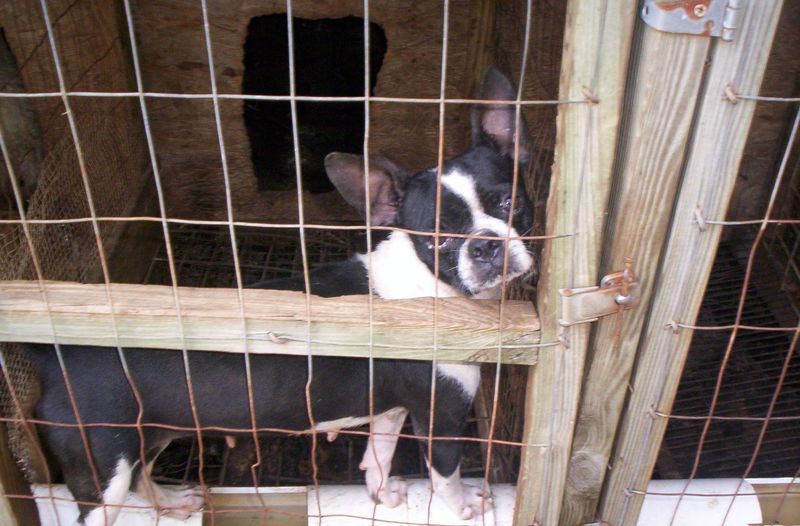
A clean and hygienic breeding environment is non-negotiable. If you visit a breeder and notice dirt, foul smells, or overcrowding, it’s time to raise an eyebrow.
Puppies raised in unsanitary conditions are more prone to illnesses and infections. A responsible breeder ensures that the living spaces are clean and well-maintained. This includes regular cleaning, fresh water, and proper waste disposal.
The health of the puppies is directly linked to their surroundings, and neglecting cleanliness shows a lack of care. Look for signs of cleanliness, such as clean bedding and well-groomed dogs.
An unhygienic environment can also reflect the breeder’s priorities and commitment to animal welfare. Always question the standards if you feel uncomfortable with the situation. Your future pet deserves to come from a place that reflects love and care.
4. Overbreeding Warning Signs
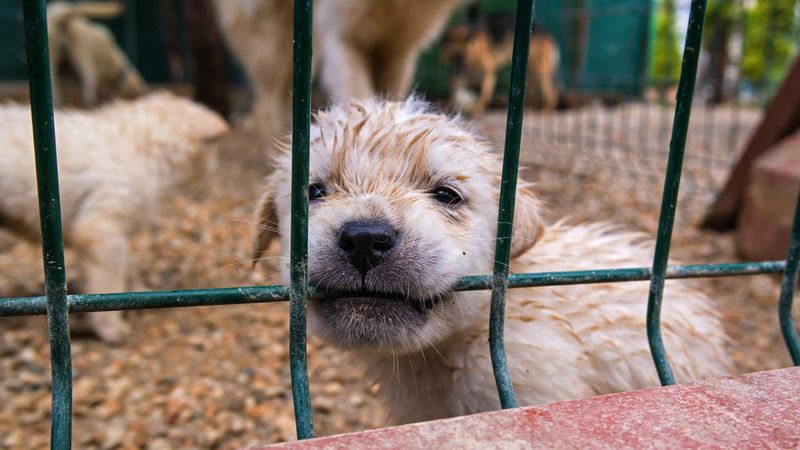
Breeding dogs should be done responsibly and with the health of the mother and puppies in mind. Overbreeding occurs when a female dog is bred too frequently without adequate recovery time.
This can lead to health issues for both the mother and her puppies. If a breeder constantly has puppies available or offers multiple litters from the same female in a short period, it’s a red flag.
Responsible breeders prioritize the well-being of their dogs, allowing sufficient time for recovery between litters. Overbreeding not only affects the health of the dogs but also the quality of the puppies produced.
Dogs need time to recuperate and maintain their health for future litters. If you notice signs of overbreeding, such as a fatigued mother or frequent litters, consider looking elsewhere. The welfare of the dogs should always be a breeder’s top priority.
5. No Puppy Socialization
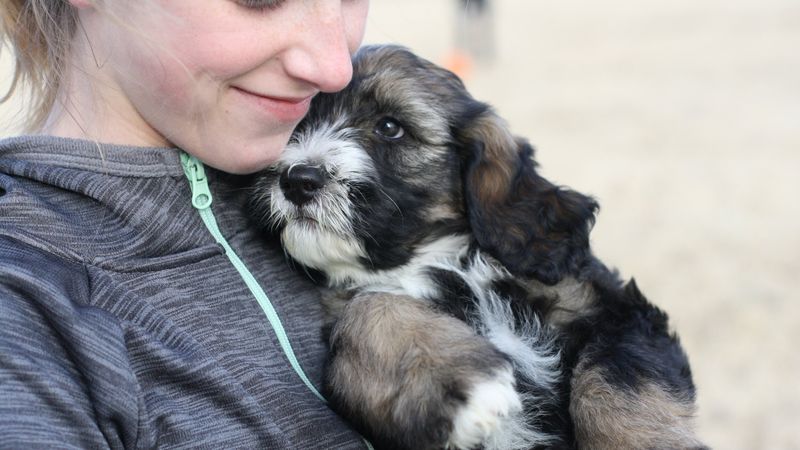
Socialization is a critical aspect of a puppy’s development. If a breeder is not providing opportunities for social interaction, it’s a significant concern. Puppies need to be exposed to various stimuli, including people, other animals, and different environments, to grow into well-adjusted adults.
A lack of socialization can lead to behavioral issues later in life. Trustworthy breeders understand this and incorporate socialization into their routine. This includes playtime, interaction with other dogs, and exposure to household noises and activities.
If a breeder isolates their puppies or fails to provide adequate social opportunities, it may indicate a lack of knowledge or concern for the puppy’s future behavior.
Always inquire about how breeders socialize their puppies and ask to observe it if possible. Ensuring your puppy has been properly socialized will lead to a happier, more confident pet.
6. Avoidance Of Home Visits

Home visits are an important part of the puppy buying process. If a breeder is reluctant or refuses to allow you to visit their facility, it could be a warning sign.
A visit allows you to see firsthand the conditions in which the puppies are raised. Reputable breeders welcome potential buyers to their home, eager to show where the puppies grow and play.
This transparency builds trust and reassures you about the care and environment provided to your future pet. A breeder who avoids or discourages visits might be hiding inadequate conditions or unethical practices.
Always insist on a visit, and if refused, reconsider your choice. Witnessing the environment helps ensure the breeder is responsible and that your puppy comes from a healthy and loving place.
7. Lack Of Breed Knowledge

A breeder’s knowledge about their breed is a vital indicator of their dedication and expertise. If a breeder struggles to answer questions about the breed’s characteristics, health issues, or care requirements, it’s a red flag.
Experienced breeders possess in-depth knowledge about the dogs they specialize in. They should provide insights into the breed’s temperament, exercise needs, and potential health concerns.
This information is crucial for you as a potential owner to prepare for the responsibilities of owning that breed. Ask questions and gauge the breeder’s responses.
A knowledgeable breeder will be enthusiastic and ready to share information. If you sense a lack of understanding or vague answers, it might indicate a lack of experience or interest in the breed. A well-informed breeder ensures that their puppies go to homes prepared for the specific needs of the breed.
8. Pressure To Make Quick Decisions

Choosing a puppy is a significant decision, and a breeder pressuring you to make a hasty choice is concerning. Trustworthy breeders understand the importance of finding the right match and give you time to consider your options.
High-pressure tactics can be a sign of a breeder more interested in quick sales than the well-being of their puppies. They might emphasize urgency or suggest that waiting means losing out on the best puppy.
Reputable breeders focus on matching puppies with the right homes rather than making fast sales. They encourage potential owners to take their time, ask questions, and consider the decision carefully. If you feel rushed or pressured, it might be best to walk away.
A patient and understanding breeder respects the significance of this commitment and values the puppies’ future happiness over a quick transaction.
9. No Contract Or Guarantees
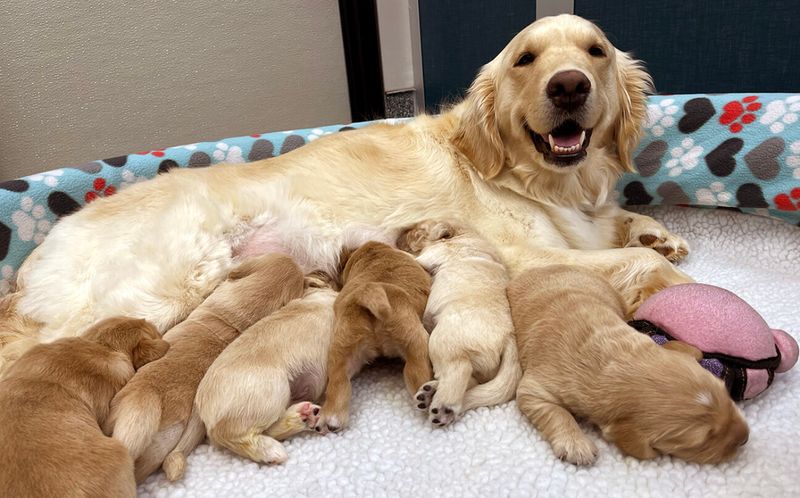
A written contract is essential when buying a puppy. It outlines the responsibilities of both parties and provides guarantees regarding the puppy’s health and well-being.
If a breeder doesn’t offer a contract, it’s a major red flag. Contracts typically include information about the puppy’s health, return policies, and breeder commitments. It protects you if any issues arise and ensures the breeder stands by their responsibilities.
Reputable breeders provide a detailed contract and are willing to discuss its terms. They also offer guarantees, such as a health warranty, demonstrating their confidence in their breeding practices. If a breeder avoids contracts or dismisses their necessity, be cautious.
A solid agreement is crucial for protecting your interests and ensuring a positive experience with your new pet.
10. Puppies Always Available
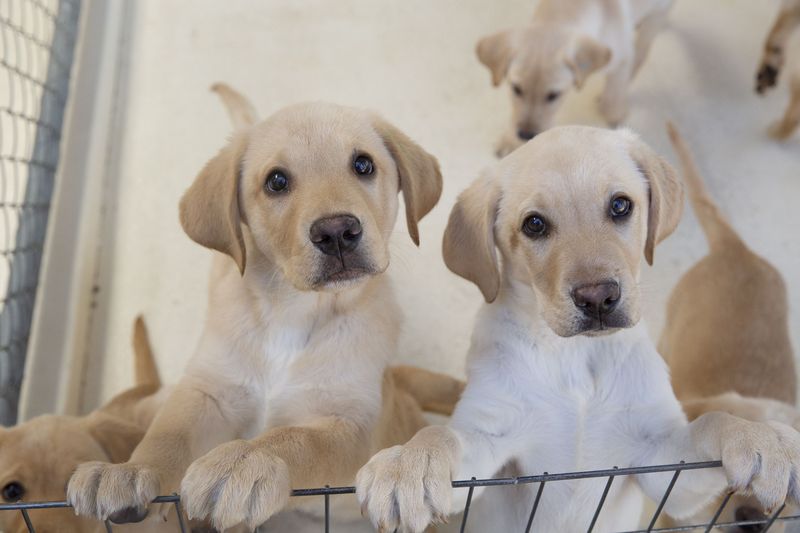
A breeder with puppies always available may not be prioritizing responsible breeding practices. Breeding should be planned and focus on quality, not quantity. Constant availability suggests a breeder more concerned with sales than the well-being of their dogs.
Good breeders have waiting lists and breed sparingly, focusing on the health and temperament of their puppies. They are dedicated to ensuring each puppy goes to a suitable home and may not always have puppies on hand.
If a breeder consistently has puppies ready to go, it’s worth questioning their practices. This could indicate overbreeding or a lack of specialized care for each litter.
Consider breeders who emphasize thoughtful breeding, prioritize the dogs’ needs, and maintain a balance between supply and demand. Your future pet deserves a start in life that reflects care and consideration.
11. No References From Previous Buyers

References from previous buyers are invaluable when choosing a breeder. They provide insight into others’ experiences and the breeder’s reputation. If a breeder cannot or will not provide references, it’s a red flag.
Previous buyers can share their experiences regarding the puppy’s health, temperament, and the breeder’s ongoing support. A reputable breeder will have satisfied customers willing to vouch for their practices and puppies.
Ask the breeder for references and take the time to follow up on them. Speaking with past buyers can help you gauge the breeder’s commitment to their dogs and clients.
If the breeder is hesitant or unable to provide references, proceed with caution. Trustworthy breeders are proud of their track record and have positive relationships with previous buyers.
12. Vague Or Misleading Answers

Clear and straightforward communication is vital when dealing with a breeder. If you find them providing vague or misleading answers, it’s a concerning sign.
Transparency is key to building trust and ensuring you have all the information needed for such a commitment. A reputable breeder is forthcoming and honest about their dogs, breeding practices, and any potential issues.
They welcome questions and provide detailed, truthful responses. If you encounter evasive answers or if your questions seem unwelcome, it could indicate a lack of transparency. Always trust your instincts and seek clarification if something feels off.
A breeder who prioritizes open communication is likely to be reliable and dedicated to their dogs’ welfare. Engaging with a breeder who values honesty will help ensure a positive experience and a healthy, happy puppy.
13. Focus On Appearance Over Health

While appearance is important, it should never overshadow a dog’s health and temperament. Breeders who emphasize looks over health may not have the best interests of the puppies at heart. This focus can lead to prioritizing aesthetics over genetic health.
Responsible breeders aim to produce well-rounded dogs, considering health, temperament, and appearance. They conduct genetic testing and health screenings to ensure their puppies are free from hereditary diseases.
If a breeder is overly concerned with physical traits and dismissive of health discussions, be wary. A balanced approach that values health and temperament alongside appearance is essential for producing healthy pets.
Prioritize breeders who demonstrate a commitment to comprehensive care, ensuring your future furry friend enjoys a long, healthy life.
14. Puppies Sold Too Young

Puppies need time with their mother and littermates to learn social skills and adjust to their surroundings. Selling puppies too young is a red flag, as it deprives them of essential development time.
Responsible breeders keep puppies until they are at least eight weeks old, allowing them to grow, socialize, and receive important maternal care.
This period is crucial for their emotional and physical development. If a breeder offers puppies younger than eight weeks, reconsider your choice. Early separation can lead to behavioral issues and health problems.
Always verify the puppy’s age and ensure it has had adequate time to develop with its family. A good breeder prioritizes their puppies’ development and ensures they are ready for a smooth transition to their new homes.






